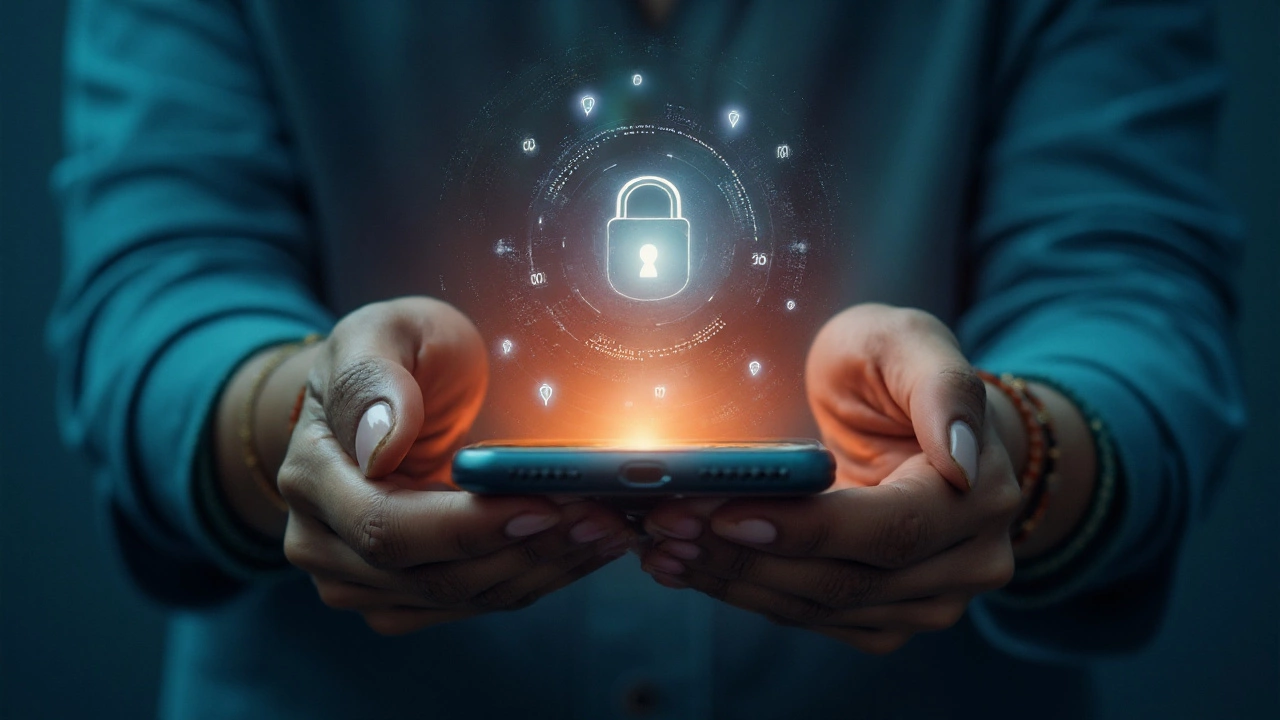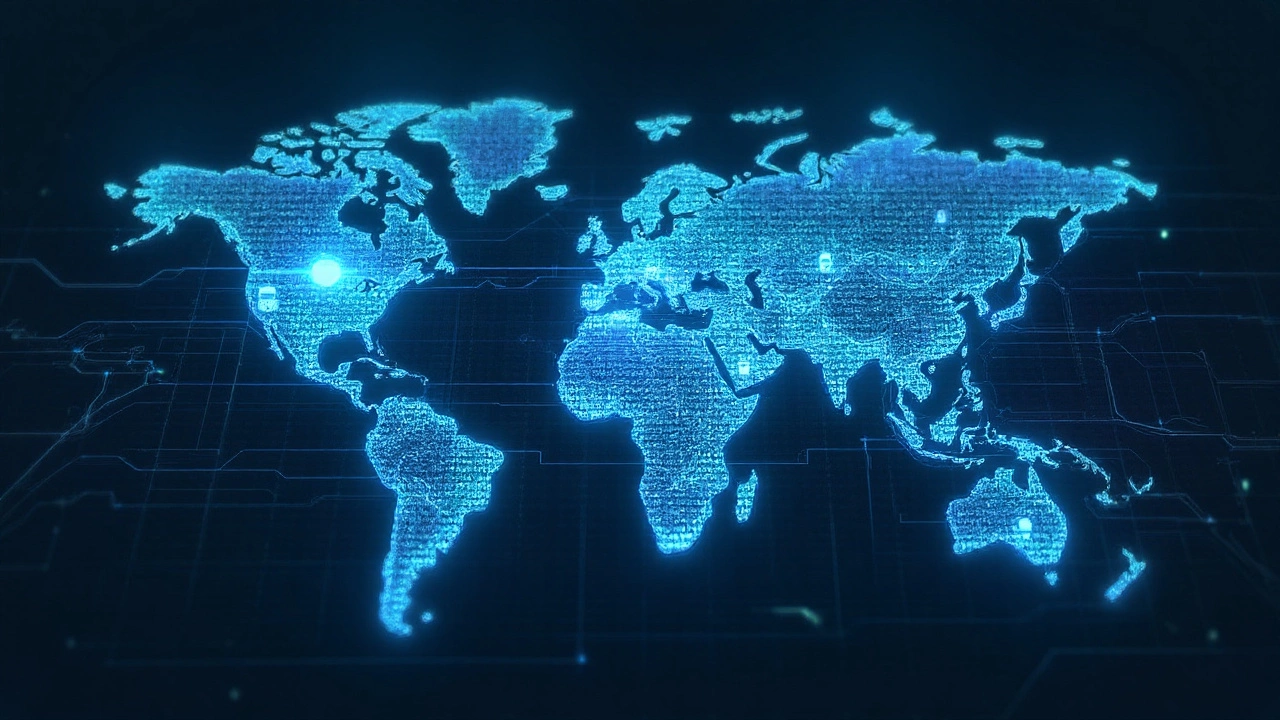If you think cyber crime is just a background threat—something that happens to other people or businesses far away—think again. Every minute, somewhere in the world, someone is falling for a phishing scam, getting their identity stolen, or watching helplessly as ransomware locks their digital life away. The crazy thing is, certain countries have turned cyber crime practically into an industry. So which country is no. 1 in cyber crime, and what does that even mean for the rest of us trying to keep our digital lives intact?
Which Country Tops the List in Cyber Crime?
Let’s not waste time: the United States regularly sits at the top of the global cyber crime charts—both as a target and, surprisingly, as an origin point. According to the latest Interpol and FBI reports, the US has more reported cases of cyber crime than any other place on the map. That doesn’t necessarily mean Americans are the sneakiest hackers; it’s a mix of high internet penetration, massive digital activity, targets with valuable data, and—yep—a fair share of talented cybercriminals within its borders. If you’ve ever heard of the massive data breaches suffered by companies like Equifax, Target, or Yahoo, you’ll see why the US is such a juicy target. Each successful attack can potentially net criminals millions in profit.
But the US isn’t the only hotspot. Countries like Russia, China, and Brazil are right behind, especially when you look at the origin of cyber attacks. Russian hacker groups, for example, have built reputations that would make 90s supervillains jealous. They're responsible for headline-grabbing ransomware attacks like the Colonial Pipeline takedown and are notorious for sophisticated state-sponsored hacking—for both political and financial gain. Then you have China, where state-linked hacking groups have targeted everything from intellectual property to entire government agencies. Brazil, on the other hand, has a flourishing underground scene for banking and credit card fraud, thriving thanks to huge numbers of internet users and a patchy history with digital regulation.
One thing that really jumps out: It isn’t just about who is doing the hacking, but also who is getting hacked. The US, with its sprawling networks of corporations, finance, education, and government, makes a massive playground for cyber criminals. Europe is close behind, especially countries like the UK, Germany, and France, which report high volumes of attacks, but often from different sources. The nature of cyber crime varies wildly by country—data theft, corporate espionage, phishing, crypto scams, you name it.
The global reach of cybercrime means one nation’s crime wave can easily flood another's shores. Just last year, one FBI takedown of an international ransomware gang showed members operating out of Russia, Ukraine, Nigeria, and the US, all collaborating via encrypted messaging apps and the dark web. There are literally no borders for these folks, only opportunities.

How Cyber Crime Has Become a Global Industry
It's not just about one-off hackers hunched over laptops in shady basements anymore. Cyber crime today is its own messy, complex business, with layers of specialization and global reach. Imagine a criminal version of a tech startup—a group develops ransomware, another group rents it out (ransomware-as-a-service!), and freelancers handle the dirty work like distributing emails or laundering money. It’s like your digital nightmare has a customer-service team and quarterly business goals.
Some countries—Russia, North Korea, Iran—have become world leaders not just in hacking skills, but also in blending government agendas with cyber criminal expertise. In Russia, for example, cybercriminals sometimes get unofficial protection so long as their work doesn't target Russian interests. That’s a tough combo to fight. Meanwhile, North Korean hackers have pushed the limits of what’s possible in cyber attacks, pulling off multi-billion-dollar cryptocurrency thefts that fund their government’s nuclear programs.
But why do some countries end up as big players? There’s a few things at play: weak law enforcement (or, sometimes, intentional government support), lots of tech know-how, economic pressures, and wide access to global networks. For example, in Nigeria, the famous “Nigerian Prince” scams may seem silly, but cyber fraud is a billion-dollar business, and the country’s high unemployment rate plus weak enforcement help fuel it. In China, the government both cracks down on cyber crime and—through its own state actors—sponsors hacking campaigns for strategic advantage.
Let’s talk about the costs. According to Cybersecurity Ventures, global cyber crime is expected to cost the world around $10.5 trillion annually by 2025. That’s more money than all but two countries make in a year. Data breaches cost big corporations an average of $4.45 million per hit in 2023, but small businesses feel the pain even worse: one ransomware attack can wipe a whole company off the map. And don’t think individuals are safe—ransomware didn’t spare hospitals, schools, or city police. I saw a local library shut for weeks last year after an attack—true story, Willow loved the extra walks during that chaos but the rest of us? Not so much.
There’s even a market for personal data and stolen credentials—is your email and password combo really as unique as you think? Millions of combos are for sale on the dark web at any moment. A cheap Netflix account, someone’s identity, even PayPal accounts, all up for grabs. As cyber criminals get bolder and smarter, the tech that we use every day—from smart fridges to online banking—becomes their playground.
The global cybercrime scene has turned borderless, relentless, and profitable like never before. Some hackers now even offer "customer service" for their victims, helping them pay ransoms and decrypt files. It’s about as backwards as it gets, but it tells you how refined the business has become. Even if your country isn’t #1, you’re still on the playing field.

Staying Safe: Tips to Outsmart Cyber Criminals
Thinking the odds are too big to beat? Before you start unplugging every device in your house, there are ways to stack the odds in your favor. Some of these really aren’t rocket science, but they make a huge difference. Here’s what actually works to keep you safe from the world’s most prolific cyber criminals:
- Use strong, unique passwords for every account. Password managers aren’t just for tech nerds—they’re your best friend if you’re tired of remembering a million logins. Trust me, it’s better than using your dog’s name (sorry Willow).
- Two-factor authentication is non-negotiable anymore. Add it everywhere you can. Even if someone steals your password, they have an extra hurdle to jump.
- Think before clicking. Always check the sender's address and don’t download strange attachments, even if the message seems legit. Grace once got an email “from our bank” about an account issue. Looks real, but it was a scam—caught because the address ended in .ru.
- Keep your devices and apps updated. Hackers love out-of-date software because it’s full of holes. Those pop-ups reminding you to update? Seriously, do it right away.
- Back up your data—ideally to both the cloud and an external drive. If ransomware locks you out, you’ll have a lifeline for your most important files.
- Never reuse passwords. Seriously. Recent stats show over 80% of breaches happen because hackers stole or guessed reused login details.
- Don’t overshare online. The more info about you out there, the easier it is for thieves to answer your security questions or guess your passwords.
- On public Wi-Fi? Assume someone’s watching. Don’t access sensitive banking info or share personal details on open networks. A virtual private network (VPN) is a good budget-friendly fix.
- Check your financial and medical accounts regularly. Early detection is key—you don’t want to find out weeks later that you’ve become a victim.
The truth is, cybercrime is only getting more sophisticated. Just as quickly as new technology hits the market—smart bulbs, cars, fridges—criminals find fresh ways to break in. No country, no matter how secure, is immune. But using smart habits and a little digital street smarts, you can dodge most of the trouble aimed your way. Next time your phone beeps with a weird text, don’t just ignore it—question it. Every click or download is like opening a digital door, and you want to make sure you’re only letting invited guests inside.
The cyber crime landscape changes fast and hackers keep getting bolder, but a little vigilance goes a long way. By knowing what’s out there and who’s at the top of the criminal charts, you’re already one step ahead of the average target. And honestly, isn’t it about time we made it harder for the world’s top cyber crooks to keep winning?
